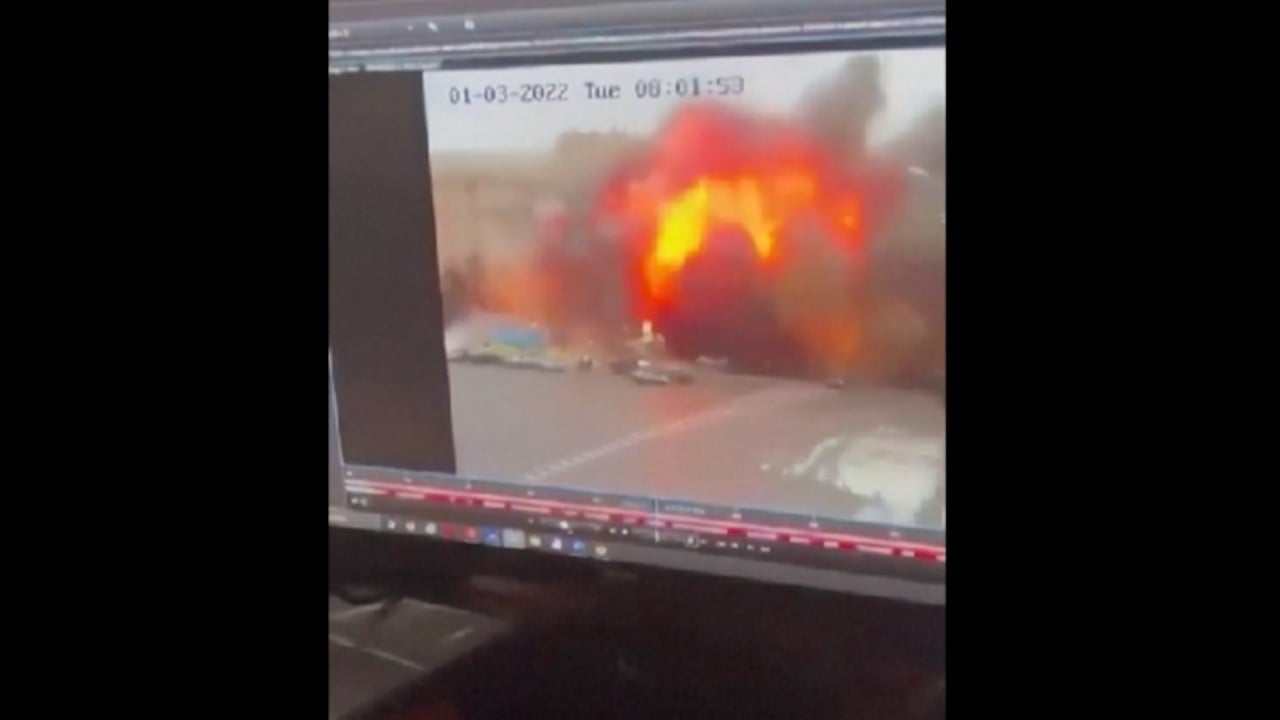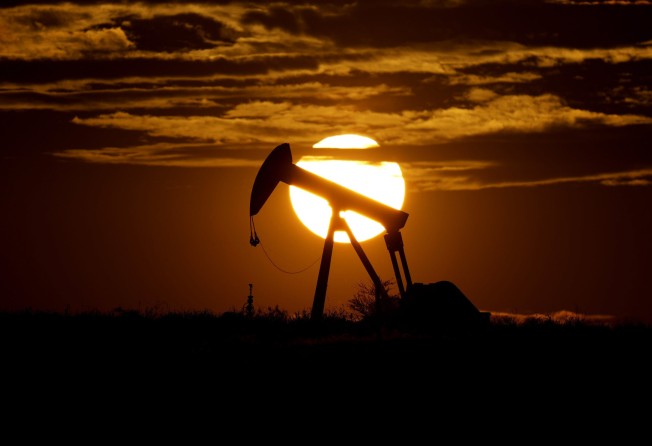
Ukraine crisis: Tokyo to release oil reserves as Japanese men answer Kyiv call for volunteers amid Russia invasion
- International Energy Agency members, Japan and US agree to release 60 million barrels of emergency oil reserves to ensure market stability
- Meanwhile, Japan will impose sanctions on Belarus for its role in Russia’s invasion of Ukraine
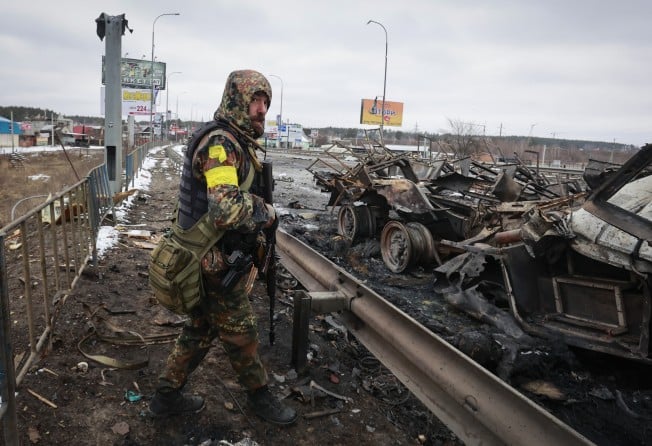
The International Energy Agency (IEA) said Tuesday its member countries, including the United States and Japan, agreed to release 60 million barrels of oil from their emergency reserves to ensure stability for oil markets amid Russia’s invasion of Ukraine.
Such a coordinated release of petroleum stocks, the first of its kind since 2011, is intended to “send a unified and strong message” to global markets that there will be no supply shortfalls as a result of the attack launched by Russia, the world’s third-largest oil producer and largest exporter, the IEA said in a press release.
The agreement was reached during a ministerial-level meeting, against a backdrop of already tight global oil markets, heightened price volatility and commercial inventories that are at their lowest level since 2014, the Paris-based agency said.

“The situation in energy markets is very serious and demands our full attention,” IEA Executive Director Fatih Birol said in a press release, adding that global energy security is “under threat,” putting the world economy at risk during a fragile stage of recovery from setbacks due to the coronavirus pandemic.
Japanese industry minister Koichi Hagiuda said after the meeting that the agreement among the 31 member countries of the IEA is intended to show “our will to the world that the international community is joining hands to overcome this difficult time.”
Hagiuda said Japan’s share will be decided later, while the United States said it will release 30 million barrels from its Strategic Petroleum Reserve.
IEA members hold emergency stockpiles totalling 1.5 billion barrels. The coordinated drawdown is the fourth in the history of the IEA, which was created in 1974, with the last one taking place in 2011 amid disruption to oil supplies from Libya.
The IEA agreed to continue monitoring markets and consider further releases as necessary, the White House said.
“We are prepared to use every tool available to us to limit disruption to global energy supply as a result of (Russian President Vladimir) Putin’s actions,” Press Secretary Jen Psaki said in a statement.
The IEA also said the ministers resolved that energy supply “should not be used as a means of political coercion nor as a threat to national and international security.”
They also discussed Europe’s “significant reliance” on Russian natural gas and the need to reduce it by looking to other suppliers, including via liquefied natural gas, amid concerns that Moscow may weaponise dependence on its energy exports.
Japanese men answer Ukraine’s call for volunteers
Several dozen Japanese men have answered a Ukrainian call for foreign volunteers to fight Russia’s invasion, according to a media report on Wednesday.
Ukrainian President Volodymyr Zelensky called on Sunday for the formation of an “international legion,” prompting dozens from the United States and Canada to volunteer.
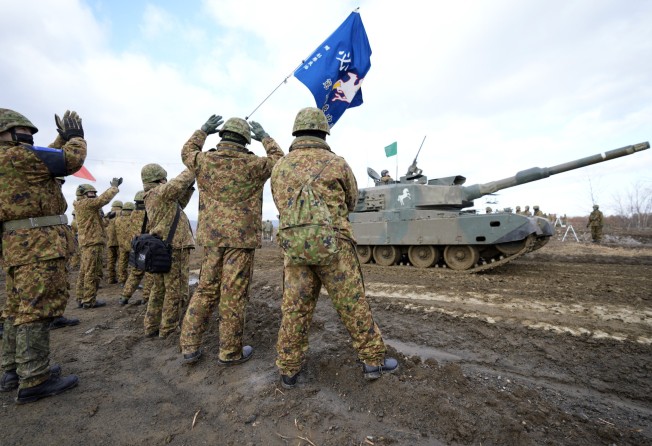
As of Tuesday, 70 Japanese men – including 50 former members of Japan’s Self-Defence Forces and two veterans of the French Foreign Legion – had applied to be volunteers, the Mainichi Shimbun daily said, quoting a Tokyo company handling the volunteers.
A Ukrainian embassy spokesperson acknowledged receiving calls from people “wanting to fight for Ukraine,” but said they knew nothing further about volunteers.
A February 28 social media post from the embassy said it was thankful for the many Japanese inquiries about volunteering but added a proviso.
“Any candidates for this must have experience in Japan’s Self-Defence Forces or have undergone specialised training,” it said.
Japan has told its nationals to put off travel to Ukraine for any reason, a warning reiterated on Wednesday by Chief Cabinet Secretary Hirokazu Matsuno, who said he was aware of the reports about the volunteers.
“The Japanese foreign ministry has issued an evacuation advisory for all of Ukraine and we want people to stop all travel to Ukraine, regardless of the purpose of their visit,” he told a news conference.
“We are communicating with the Ukrainian embassy in Japan and pointed out that an evacuation advisory is in place.”
Japan’s embassy in Kyiv to temporarily close
Japan said Wednesday it will temporarily close its embassy in Kyiv as Russia’s invasion of Ukraine escalates, with many civilians desperately fleeing the country.
The embassy’s operations will be transferred to a temporary liaison office set up in Lviv in western Ukraine, according to the Foreign Ministry.
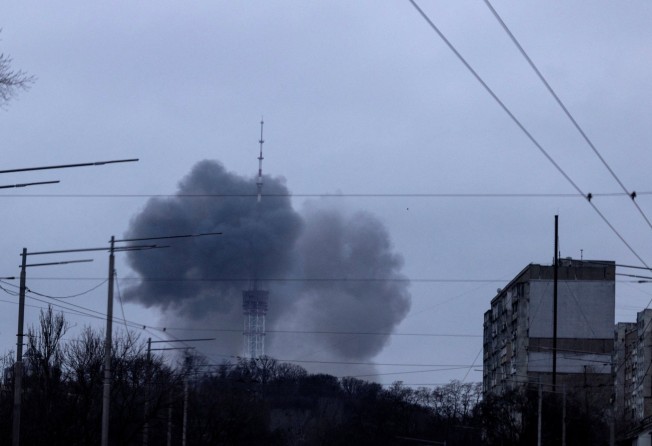
Japan to impose sanctions on Belarus
Japan will impose sanctions on Belarus as early as this week for its role in Russia’s invasion of Ukraine, Prime Minister Fumio Kishida said Wednesday.
“Given Belarus’ obvious involvement in Russia’s invasion of Ukraine, we have decided to take sanction measures against individuals including President (Alexander) Lukashenko as well as entities, and implement export control measures,” Kishida said in parliament.
“This should be carried out within this week,” Kishida said, as Belarus, known for its close ties with Russia, has served as an entry point for Moscow’s forces invading Ukraine.
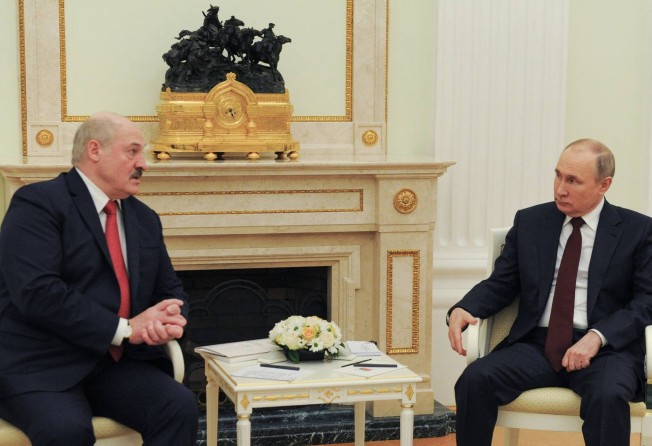
In the session of the House of Councillors’ Budget Committee, Kishida again dismissed former Prime Minister Shinzo Abe’s suggestion that Japan commence discussions on the possibility of a nuclear sharing arrangement with the United States in the wake of Russia’s aggression in Ukraine, a non-nuclear state.
“It is hard to allow for such an idea and the government has no plan to discuss it,” Kishida said, reiterating the idea is not in line with Japan’s three non-nuclear principles of not producing, possessing or allowing nuclear arms on its territory.
In World War II, the Japanese cities of Hiroshima and Nagasaki were devastated by US atomic bombs. Kishida, elected from a Hiroshima constituency, has been calling for a world free of nuclear weapons.
Reporting by Kyodo, Reuters
